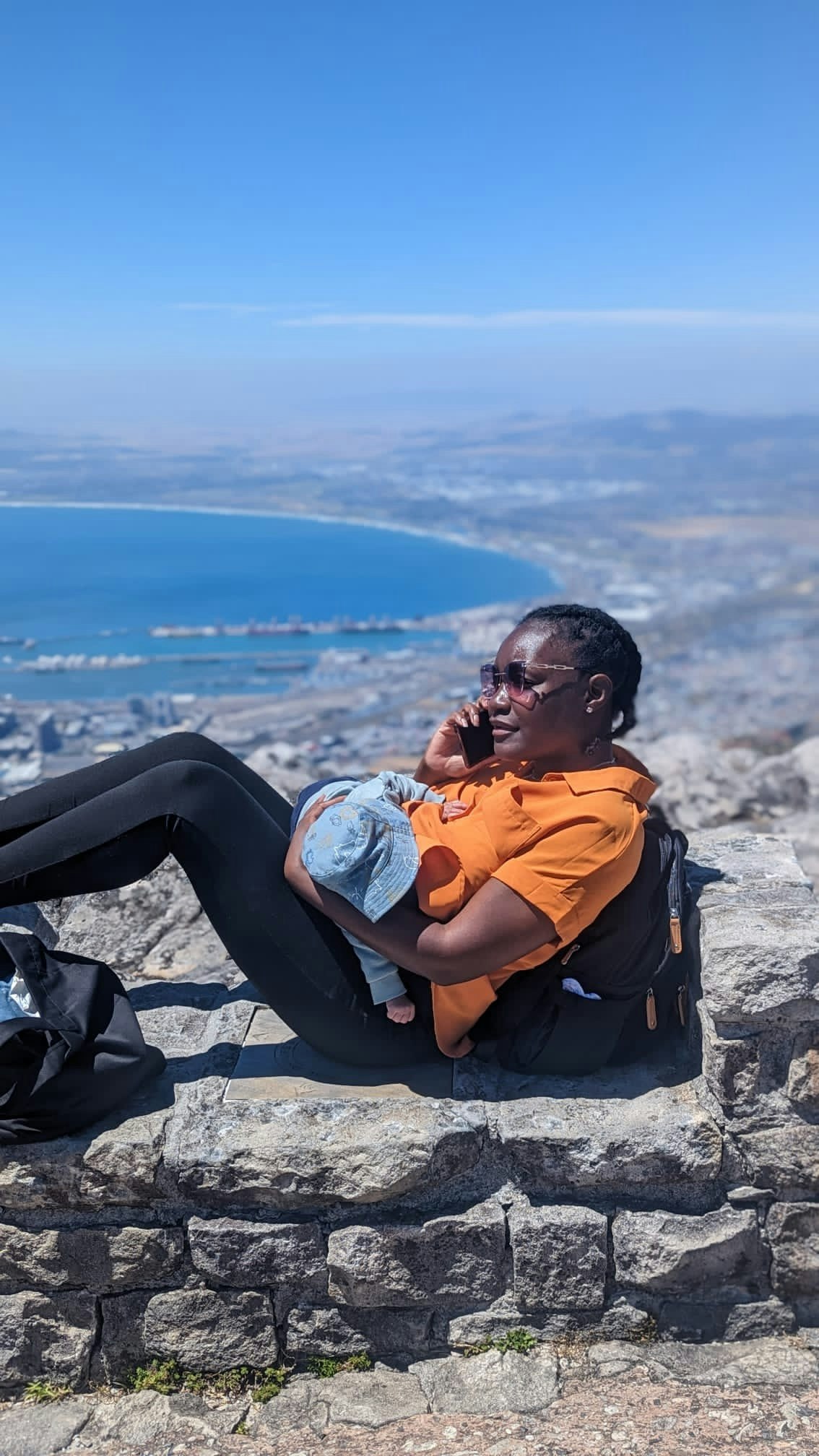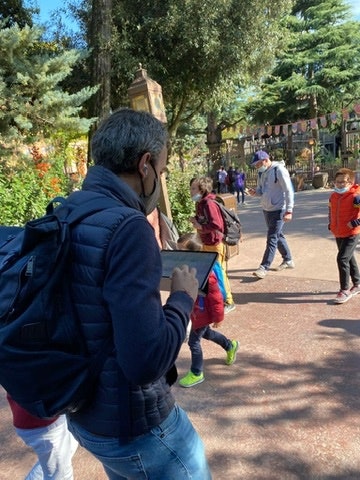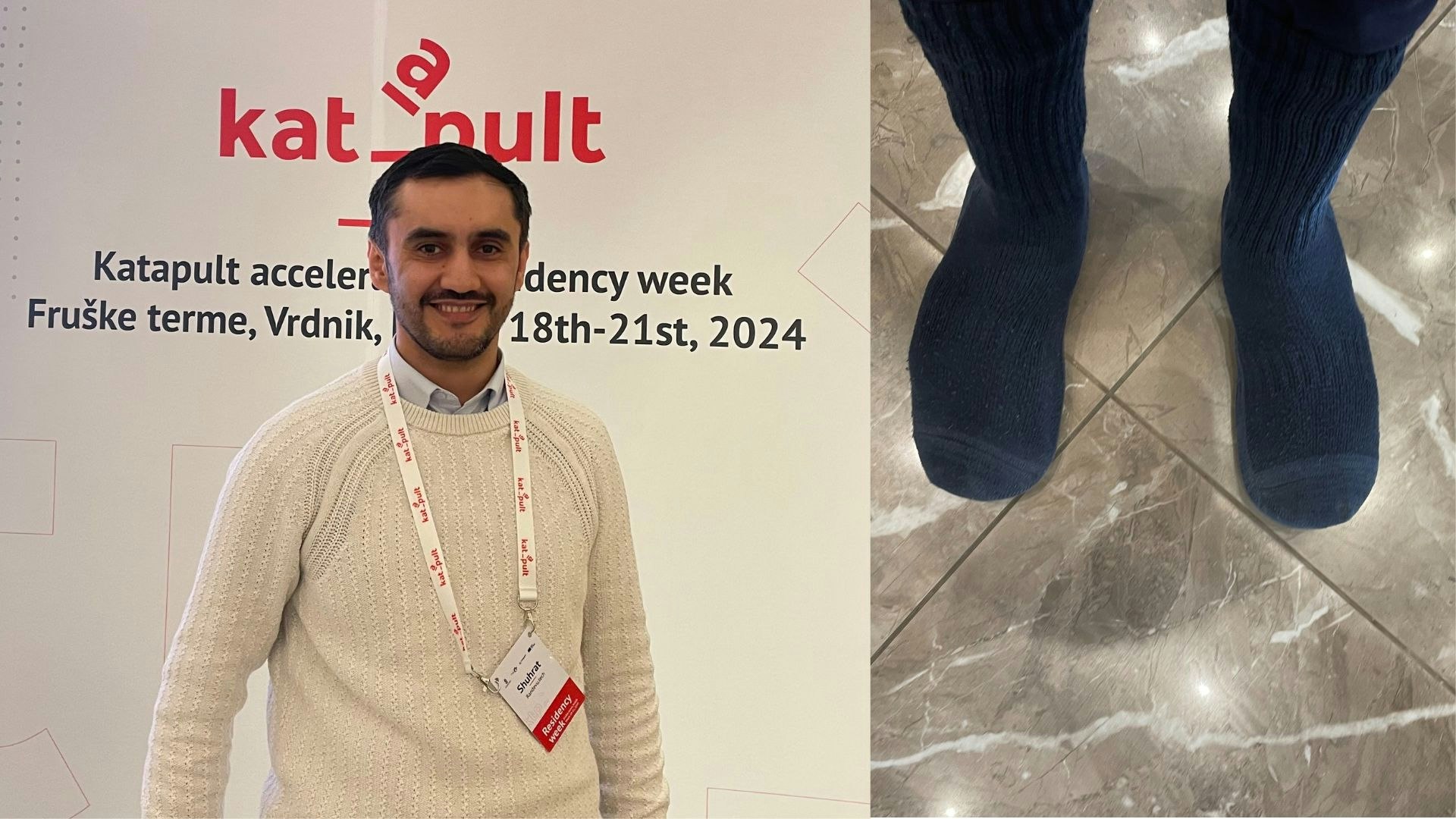Cafe music, a quiet meeting room and the buzz of a restaurant are all common background noises when founders and VCs meet to talk about potential business. But for Federica Moreno, founder of Berlin-based sustainable marketplace UpHavin, there was a very different soundtrack when she took a call from an interested investor: the commotion of a calf being slaughtered in the background.
Moreno was on a hiking trip through rural Albania before announcing UpHavin’s pre-seed round. She was taking a pit stop at a host family’s home in the village of Theth, where fruit and meat are produced on site, when she got a notification that an investor had viewed her startup’s pitch deck.
Keen to get the ball rolling, she set up a meeting. But before she joined the call, her hosts began to kill the animal for meat in the garden.
“I spent the entire call trying to ignore the cow’s mooing and the surrounding sounds, and playing with the mute button so as not to seem like a character in a horror movie,” Moreno says.
“I didn’t anticipate that was going to happen when I scheduled the call, and rescheduling on short notice just wasn’t an option. Getting time with VCs can be a challenge, and as founders we’re always looking for an opportunity to pitch our company to the right investor.”
But there’s also an element of expectation attached to why Moreno decided to take the call, despite her surroundings: “There is this myth that, as a founder, you need to prove to investors that you are extra diligent and responsive.”
And she isn’t the only founder to take a VC meeting in less-than-optimal situations.
Family time
Claudine Adeyemi-Adams, founder of AI-powered employment support startup Earlybird, was also in a rural spot when she received a call from potential investor Impact Shakers. She and her husband, along with their three-month-old baby, were halfway up Table Mountain in Cape Town.
“We tried to get to Table Mountain during the trip but it was cloudy — then one day it was clear so we thought ‘let’s go early: we can go up, see it, explore, come back down and go for lunch, and I’ll be seated somewhere convenient and quiet to take this call by the afternoon’,” Adeyemi-Adams says. But when they arrived there were huge queues, and she soon realised they wouldn’t make it back down the mountain and to a table in time for the meeting — so she accepted it mid-hike. “We found somewhere with fewer people around so I could sit down on a rock and take the call,” she says.
“The call was at 1:30pm — at literally 1:28, my son started screaming and was hungry. Now, not only do I have to be sitting on this rock, I have to get comfortable and be in a position to breastfeed, but also I’m supposed to be on this call.
“I had been pitching investors while breastfeeding and they hadn’t noticed because it was under the laptop, but it’s a little bit more awkward when you’re on the top of a mountain,” she says.
“[I said], ‘If you don’t mind, I’m going to go off camera because — you won’t believe this — I’m actually on top of a mountain on holiday, and my son has decided that now is the time that he wants to breastfeed.’”
She says the experience bolstered her connection with the VCs she pitched. “It went really well. We had deeper dive conversations and due diligence, but they became our most significant investor.”

Founder families have to be understanding if they’re to cope with the pressures that come with a loved one running a startup. It’s a quality that Jorge Lluch, cofounder of Barcelona-based financing planning software startup Abacum, appreciated when he was trying to look unperturbed on a VC call while his kids screamed at him from the Dumbo ride at Disneyland Paris.
The 2021 trip was a Christmas present to his three children after they struggled through a particularly rough Covid lockdown. In the months running up to the trip, however, Abacum started getting attention from major investor Atomico.
“I was in the middle of pitching to the investment committee and had a one-to-one booked with Niklas [Zennström, founder of Atomico]. The trip was coming up, but I couldn’t let the family down and cancel,” he says.
So rather than disappoint, he decided to multitask. “The reality is that I was walking around the park with my computer and iPad in the queues for rides,” he says; “I was making the most of the experience, while also pushing to get the deal signed.” The hustle paid off — weeks after the trip, in early November, the round was closed.
“I don’t think [Niklas] realised I was in Disneyland,” says Lluch, “but maybe now [this article is out] he will call me like ‘Jorge, what the…’
“I potentially did a good job of hiding it,” he says — but even if people cottoned on, he adds that he wasn’t embarrassed by the setting. “Technology these days offers you this opportunity to not have to cancel your family trips and stay in the office; to be able to work [anywhere], that is a really important deal for us.”
While the story has become one they now laugh about, juggling family life with startup building can be tough, he says. “I make them part of the journey. I think they’ve seen and know how hard founders need to work — but at the same time, if it’s not urgent, I do try to put my phone away and be with them.”

Creative solutions
Sometimes, creativity helps capture VC interest — a mentality that Shuhrat Ashurov, cofounder of B2B e-commerce startup Randevu, adopted when trying to secure one of the most sought-after mentors in the Katapult Accelerator in Serbia earlier this year.
In the weeks before mentors had to decide which startups they’d take on, the investor in question invited founders to join her on her daily run the next morning — but Ashurov didn’t have running shoes with him on the trip.
That is, until his cofounder goaded him:: “He challenged me saying, ‘that’s just an excuse, if you’re going to run, you can run barefoot!’,” says Ashurov.
Spurred on, he began brainstorming ways to avoid Serbia’s rocky ground damaging his feet without the protection of shoes. “First, I thought about putting toilet paper under my socks so it doesn’t hurt,” he says; “that didn’t work out.”
But then, inspiration struck: “It clicked when I saw the white hotel slippers.”
Ashurov put the slippers on, put his socks over the top of them and joined the investor on the 5km run, taking the opportunity to pitch his startup and himself as a mentee. “She ended up choosing our team as a team to mentor; she said ‘I’m amazed with your creativity.’ She told everyone at the cohort the next day, ‘he ran barefoot — you have running shoes and you still didn’t come for the run.’”

And while his out-of-the-box thinking secured the mentor he wanted, the reputation it created also stuck. Stories of his creativity swept across the cohort and spread to investors: under a LinkedIn post celebrating the Berlin half marathon he finished months later (with shoes on this time), VCs commended the “barefoot founder” for “striking again”.
In a sea of hopeful entrepreneurs, the founders who shared their stories agree that doing everything they can to capture VC attention is crucial.
“Approaching any investor, I always had that mindset that there are hundreds of other founders pitching them,” says Ashurov. “So how do I stand out? What do I do to make an impression that I’m the type of founder who solves problems, comes up with a different thing and is creative enough to make something great?”
A 5k in hotel slippers, evidently, is one of those ways.
Read the orginal article: https://sifted.eu/articles/founders-strangest-pitching-spots/


